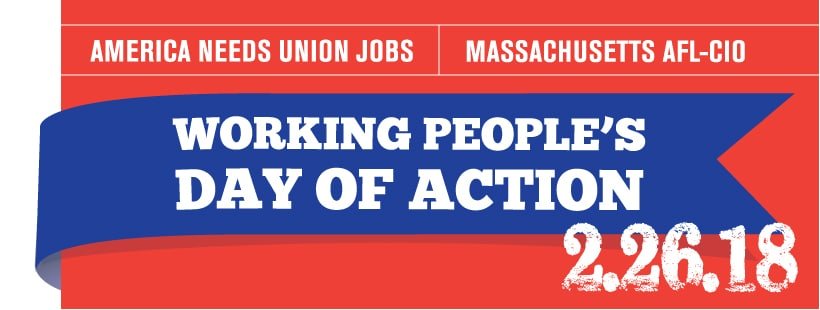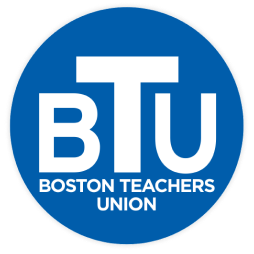The information below comes from the AFT. Download a PDF for printing. Please plan to join us on February 26 for the Working People’s Day of Action. Read the amicus brief filed by the AFT in January of 2018.
 What is the Janus v. AFSCME case?
What is the Janus v. AFSCME case?
The U.S. Supreme Court has agreed to hear a case called Janus v. American Federation of State, County and Municipal Employees, Council 31 that is being pushed by wealthy corporations and right-wing politicians to eliminate our freedom to come together in unions to create a better life.
For years, wealthy interests have sought to make dishonestly named “right-to-work” legislation the law of the land, and that’s what the Janus case would do. These laws are already in place in 24 states, tilting the power balance toward employers and weakening workers’ freedom to join together to secure better wages, working conditions and benefits.
Belonging to a union helps working people gain the freedom to prosper. This freedom comes not only from making a good living, but also from work-life balance, the ability to take a loved one to the doctor or attend a parent-teacher conference without fear of losing your job, and the ability—after a lifetime of work—to retire with dignity.
Many corporations, wealthy interests and the politicians in their corner want those freedoms for themselves but not for their employees or people in public service like teachers or healthcare workers. These anti-union forces have rewritten the economic and political rules to amass more wealth for themselves and secure as much influence as money can buy. They know that there is power in numbers, so they have plotted ways to gut union membership.
What do they want the Supreme Court to do?
Those behind the Janus case want the court to overrule decades of precedent enabling public sector unions to charge a fair-share fee to nonmembers for the representation the unions provide. The goal is to cripple labor unions, weaken workers’ rights, and further exacerbate the imbalance of power in our economic, political and social systems. That’s why those behind Janus requested the Supreme Court to review the case right after the confirmation of Justice Neil Gorsuch, who has a record of siding with corporate interests against working people.
Who is behind this case?
The National Right to Work Committee is part of a network funded by corporate billionaires to use the courts to rig the rules against everyday working people. For decades, the corporate CEOs and billionaires funding this case have used their massive fortunes to pay politicians and corporate lobbyists to chip away at the freedoms people in unions have won for every single one of us. And now they want the highest court in the land to take away our freedom to come together to protect things our families need: a living wage, retirement security, health benefits, the ability to care for loved ones and more.
Janus is just one of the attacks on working people. The Guardian recently reported on a network of right-wing think tanks and funders plotting an $80 million campaign in nearly every state to “defund and defang unions” because they know strong unions are the only thing standing between them and total control of our economy and democracy.
Where did this case come from?
This case originated from a political scheme by billionaire Bruce Rauner, governor of Illinois, to take away the freedom and opportunity of working people to join together in strong unions so that he could advance an agenda benefiting corporations and the wealthy. Rauner launched a political attack on public service workers immediately after taking office, filing a lawsuit on his own behalf to bar the collection of fair-share fees by public service unions. A federal judge ruled that Rauner could not bring this action because he was not himself an employee paying fair-share fees. But the legal arms of the National Right to Work Committee and the Liberty Justice Center were able to carry the case forward by planting plaintiffs as stand-ins for Rauner in the federal lawsuit. The district court dismissed the case, based on long-standing precedent. The plaintiffs asked the lower court to fast-track their appeal and rule against them in order to more quickly get the case before the U.S. Supreme Court.
What are fair-share fees, and why are they important?
Unions work because we all pay our fair share, and we all benefit from what we negotiate together. Public sector unions charge a fair-share fee to nonmembers for the representation the unions provide. No one is forced to join a union, and no one is forced to pay any fees that go to politics or political candidates. That is already the law of the land. Nothing in this case will change that. This case is about taking away the freedom of working people to come together, speak up for each other, and build a better life for themselves and their families.
What do we do about Janus?
With so much at stake, we cannot let the anti-union forces weaken our union through the cynical ploy of Janus. We are working to help our members talk with one another about the value of belonging to our union. Speaking up for ourselves, for our students, for our patients and for our community is at the core of who we are. Janus will not change that, but we cannot let ourselves be silenced.
Working people form unions. We form unions so we can earn a good living while also having a life outside work. We form unions to ensure our voices are heard. We speak up for our schools and universities—to fight for smaller class sizes, safe and welcoming environments for students, and to defend academic freedom. We speak up for our hospitals to make sure patients come before profits through safe nurse-to-patient ratios. We speak up for public services by fighting privatization of these services. And we speak up for the needs of the communities we serve— by fighting bullying, by pushing childhood literacy initiatives, and by promoting access to voting and health care. This is the story we need to be telling.
